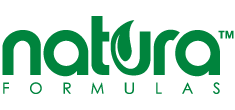Going Vegetarian - 8 Things you Need to Know
First off, good on you for switching to a veggie lifestyle… And even if you’re not there yet but are seriously considering doing so, that’s great! Once you discover more about the amazing changes the body experiences simply by going meat-free, you may find yourself wondering how you never considered converting before. But you're here now, and that’s what’s most important!
To honour and support you in this new way of living, we’ve decided to share 8 key changes that you will likely experience by following a vegetarian diet. Here’s what to expect:
1. Weight Loss
Yes, it is very likely that you may lose some weight after changing to a meatless diet. Of course, it is important to bear in mind that no one body is the same.
Different bodies have different responses and rates of reaction to this new diet. While some may lose weight instantly, others may lose gradually, and some may possibly not lose at all.
The ultimate benefit of a vegetarian diet is ultimately an overall general well-being. Weight-loss is merely possible and added bonus.
2. Possible Gas / Boating
While weight-loss is certainly possible, it is also true that a vegetarian diet may bring about gas and bloating during the transitional phase.
Plant sources of protein contain indigestible carbohydrates, and the gut is therefore forced to adjust to the new bacteria which is needed to help in the digestive process. This process may likely cause you to feel bloated and gassy.
Over time, though, your body will get used to the increase of dietary fiber, and the gas and bloating will disappear.
3. Muscle Recovery
Because plant protein takes longer for the body to break down, your muscles may also require a longer recovery period after a run or work-out, so there’s no need to worry if you may feel slightly more achy than before after muscle use.
What’s important is to be careful about your protein intake to make sure you are consuming adequate amounts of complete protein, such as soy products and quinoa. There are also a number of protein foods which although classified as incomplete proteins, can be combined to make complete proteins, such as beans with rice or corn, beans, and grains, or beans, and nuts.
4. Taste Buds - Changes?
Fact of the day: our sense of hearing and sense of taste are ultimately sharpened or weakened by the level of zinc in our body, which means that people with lower levels may find that their taste buds are not as acute as they should be.
Zinc is a mineral that is derived mainly from meat and fish products. It is estimated that vegetarians actually require a whopping 50% more zinc than meat-eaters do!
But there’s absolutely no need to panic… the required amount of zinc may very easily be obtained through vegetarian Zinc supplements. Phew!
5. Increased Supplements
Yes, we repeat. Obtaining adequate vitamins and minerals, such as vitamin B12 and zinc, solely though food may be difficult for vegetarian enthusiasts.
This is why it is so important to add sufficient supplements to your daily diet.
Thankfully, there is a range of vegetarian supplements out there to choose from, so you can rest assured that you will be able to remain a true vegetarian while enjoying a complete and balanced diet!
6. Nutrition Label Guru - Learning What to Avoid
In theory, cutting out meat may seem fairly straightforward. Simply eliminate red meat, poultry, and fish, right? Not exactly. A number of apparently vegetarian foods are, quite shockingly, sourced from or contain meat substances.
This is why it is so essential to know what is in your food products… And it is, therefore, safe to say that on your vegetarian journey, you will naturally and most certainly become quite the expert at reading and understanding nutrition labels in order to identify and avoid those sneaky, “no go” ingredients.
To help get you started, here are a few examples of ingredients to steer clear from:
- Foods containing gelatin, such as chewy candies (e.g gummy bears, Starburst and marshmallows), and some brands of peanuts (e.g. Planters). Gelatin is a protein derived from the collagen in cow or pig bones, skin, and connective tissues, which is found in numerous foods.
- Cheeses that use an enzyme called rennet, such as Parmesan, Gorgonzola and Pecorino, and food which incorporates any such cheeses, such as pesto! Rennet is sourced from the stomach lining of goats and cows.
- Foods containing anchovy ingredients, such as Omega-3 products, Worchester sauce, and Caesar dressing.
- Foods containing lard or which may be fried in animal fats, such as fries.
It looks like a lot to take in, but it’s not all doom and gloom... Promise! You will learn to recognise hidden meat sources like a pro in no time. And you will also be amazed to find how many products there are which are in fact completely vegetarian friendly!
7. Environmental Awareness and Gratitude
Once you keep to a vegetarian regime, the more you will realise that it is not merely a way of eating, but a way of living.
You will undoubtedly seek to learn more about it, and the more you research, the more you will discover the shockingly negative impact that the meat industry is having on the natural and living environment.
This fact alone will make you feel genuinely grateful for being part of a conscious movement to reduce animal suffering and environmental damage… just by the foods, you choose to eat! And that’s amazing!
Bottom Line
Going vegetarian means so much more than a change to your diet. It brings about a positive transformation of the self, both mentally and physically. Like anything new, it may be a challenge at the start, but you will soon see how well the body adapts to the vegetarian way of life, and you will not be disappointed!







